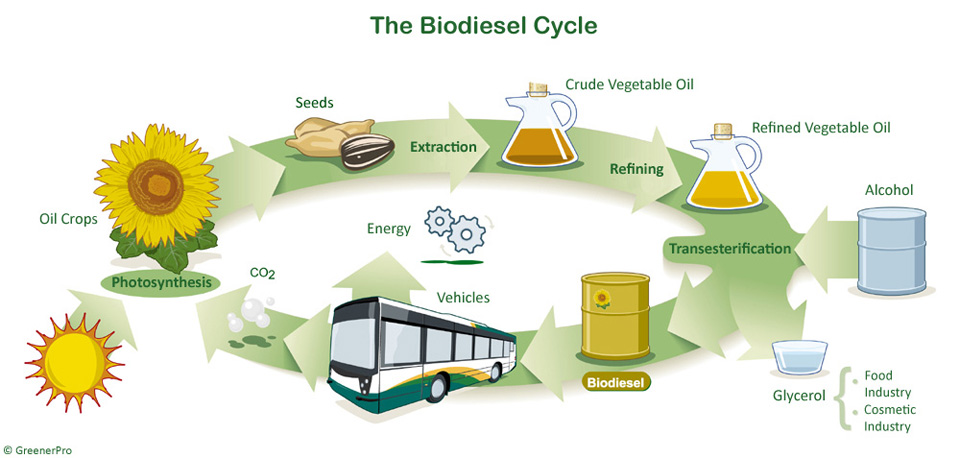First-generation biodiesel is produced based on trans-esterification of vegetable oils and fats through the addition of methanol (or other alcohols) and a catalyst, giving glycerol as a co-product. There are three technological production method that can be used:

Advanced processes include the replacement of methanol of fossil origin, by bioethanol to produce fatty acid ethyl ester instead of fatty acid methyl ether (the latter being the traditional biodiesel). In order to expand the relatively small resource base of biodiesel, new processes have been developed to use recycled cooking oils and animal fats though these are limited in volume
In order to expand the relatively small resource base of biodiesel, new processes have been developed to use recycled cooking oils and animal fats though these are limited in volume (Second Generation):
Hydrogenation of oils and fats is a new process that is entering the market. It can produce a biodiesel that can be blended with fossil diesel up to 50% without any engine modifications.
However, with current production processes, Synthetic Biofuel Production is the most viable for current and future technology. This process is used to the production of bioethanol as well where as the biomass is undergoing gasification and a conversion process with a catalyst in order to turn into liquid form ( Fischer – Tropsch process).
The largest biodiesel producer currently is Germany, which accounts for 50% of global production. In the European Union, biodiesel accounts for the major share of total biofuel production and is mainly derived from oil crops (canola and sunflower) as feedstock.
.Biodiesel is currently most often used in 5%-20% blends ( B5, B20) with conventional diesel, or even in pure B100 form.
Reference:
“IEA Energy Technology Essentials.” IEA Energy Technology. N.p., Jan. 2007. Web. May 1.
Composed by Tien, edited by Matt
